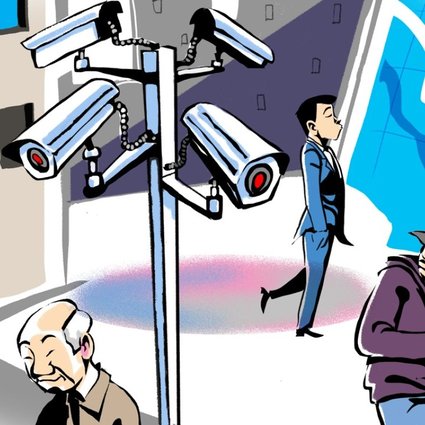Why security cameras are an invasion of privacy?
Are Security Cameras an Invasion of Privacy?
There is some debate over whether security cameras in public areas violate people’s privacy. While some believe that these cameras are a violation of their right to privacy, others maintain that these devices are beneficial in many ways. They can save money by reducing crime, as well as improve safety. Here are some arguments for and against the use of public surveillance cameras. Hopefully, you’ll find one or two that speak to your concerns.
Private surveillance cameras are a violation of privacy
A recent news story about a man who was killed in front of three surveillance cameras in New York has caused many people to ponder whether private surveillance cameras are a violation of their privacy. The video shows the man lying on the sidewalk, surrounded by the cameras. Emergency responders took over two hours to reach him and he died before they arrived at the hospital. It is impossible to say whether surveillance cameras prevented the man from dying. But we can safely assume that they are a violation of his privacy.
If a camera is placed outside of a building or home, the owner must ensure that it doesn’t view the interior of a home or business. While it isn’t illegal for businesses to install these cameras, they must follow certain regulations to ensure that they do not violate the privacy of individuals inside private buildings. In addition, private residences or businesses should only install cameras in locations where they can see the people inside.
Many states have laws on surveillance cameras. Some states, such as Florida, Alabama, and Minnesota, require that businesses obtain permission before installing security cameras in these areas. Nevertheless, most other states do not require permission before installing surveillance cameras or hiding them in public areas. Nevertheless, businesses can install these cameras with the consent of the people they are trying to monitor. In the state of Florida, however, concealed surveillance cameras are illegal and must be disclosed to the people being watched.
Public surveillance camera systems can be cost-effective
Public surveillance camera systems can be beneficial for a variety of purposes. These cameras can record footage to help police solve cases and prevent vandalism. They can monitor a neighborhood or business twenty-four hours a day. They can be more effective than a human, who cannot do the same job effectively with such a small investment. Further, they can help resolve disputes between family members or employees.
In addition to reducing crime, public surveillance camera systems can reduce insurance premiums. Studies by Urban and others show that cameras can be used in public areas to monitor trespassers and thieves. On average, the cost of installing such a system is less than PS50. The security cameras also reduce the cost of securing a property, which is advantageous because insurance premiums remain low.
Some individuals are concerned about having their personal privacy violated, but public video surveillance can ensure excellent safety in public areas. Besides ensuring the safety of residents, these cameras also improve the overall sense of neighborhood confidence. However, many people worry about the intrusion of privacy and have legal issues to contend with. However, if done correctly, these cameras are not an invasion of privacy. This is the best way to ensure public safety while not causing a negative effect on privacy.
They prevent crime
There are arguments for and against surveillance cameras. They may be an invasion of privacy, but they’re also helpful in deterring crime. Some say they’re a necessary evil, and others are simply malicious. The debate is particularly intense with regard to home security cameras. These cameras can record people’s faces and activities in public places, and they’re often used to catch criminals. But whether security cameras are an invasion of privacy depends on who’s installing them.
A 2005 opinion piece in the Chicago Tribune quoted a city spokesman as saying that cameras had prevented 4,500 crimes in four years. But the writer estimated that there were more than a million crimes over the same period, and the cameras contributed only 0.05%. And the camera’s presence displaced activities. These crimes reoccur even within the same neighborhood, so cameras may not reduce crime.
In fact, the use of security cameras is increasing, with cities like Boston deploying thousands of closed-circuit television cameras. Police use the recordings to prevent crime and catch criminals in the act. The cameras are installed in public places such as business buildings, high-end residences, and public transit stations. While it may be a concern for many civil liberties advocates, these surveillance systems are necessary to protect citizens and prevent crime.
